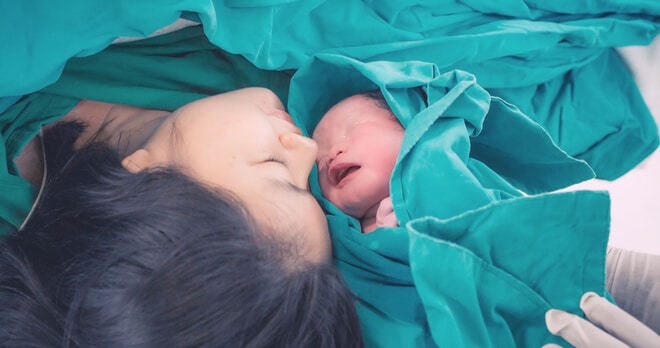One mother’s experience of the trauma of her birth injury

In 2016 our client Judy (whose name has been changed) gave birth vaginally to her first child (with the assistance of forceps) in hospital. During the delivery she was told she had suffered a Grade II perineal tear which required repair and was discharged from hospital the next day.
Unfortunately, whilst undertaking the repair the obstetrician had failed to detect that in fact she had suffered a “button hole” (fourth degree) tear in her vagina and damage to her anal sphincter. As the internal tear was not repaired she went on to develop a fistula, allowing faecal matter to pass through her vagina. The complications of the failure to complete a primary repair of both injuries were catastrophic for Judy.
Treating the injuries
Following diagnosis of the injuries Judy was separated from her new born child and admitted to hospital for surgery to insert a Seton drain (a measure which keeps the fistula open to allow it to drain and help with healing), which she described as “harrowing and unpleasant”. Following this temporary repair measure she suffered months of faecal urgency and incontinence, as well as incontinence of flatus, which she said was “very embarrassing”.
Seven months after the birth Judy underwent a LIFT procedure to try to repair the fistula, which she said was “painful and debilitating”. Unfortunately the surgery failed within days as it broke down and she was leaking faecal matter vaginally requiring six to eight showers per day and bathing every evening, all whilst trying to look after a young baby. A second attempted repair was undertaken, but this also failed and her symptoms continued.
Following a third repair operation a year after the birth, the fistula finally began to heal and the leakage stopped, albeit she still has urgency to void.
The ongoing trauma of a maternal birth injury
Judy reflected on the experience when speaking to us:
“During the time I was suffering with a recto-vaginal fistula I found it very difficult to leave the house, both due to the unpredictability of my bowels and as I was trying to deal with a new baby. Other consequences were that I was left with a very short perineum and this is now very tight and scarred. Sexual relations with my husband were severely affected. I am told I would benefit from a Fenton’s procedure to repair the scar tissue caused by my injuries, but I feel like my vagina looks abnormal so I would also like this sorted out.
Psychologically I have felt really low and I found it difficult to cope with the effects of my injury. The only person I could really talk to was my husband and I had a deep emotional dependency on him. Life had become really challenging and I found these health problems embarrassing and intrusive, life was just burdensome. For the first six months I was in tears on a daily basis and I was really anxious. I tried to seek support too from my parents, sister and NCT friends, who all helped a lot, but there were times when I felt I couldn’t cope.”
We asked Judy what her advice to other women who have gone through this would be:
"If you can, get a trusted family member or friend to come with you to all appointments. It’s harder to ask all the right questions when you feel in a vulnerable position, particularly if you have to be examined. It really helps to have someone in your corner and to fight for more appointments and follow ups.
At the time, it feels like you are going through this forever, as you are constantly operating in crisis mode, but be easy on yourself and give yourself time to adjust. If you feel you can talk about it with friends, particularly new mums, this definitely helps. It’s a hard balance to strike, between talking for much needed therapy and maintaining privacy and dignity, however, the friends I did tell were fantastic and they gave me confidence to talk about it more. When I met other mums at baby groups who also had birth trauma, that made me feel like I wasn’t alone or a freak. It’s amazing how many other stories came back, when you start to share your story.”
Birth Trauma Awareness week is from 6-12 September 2020 and the Birth Trauma Association is encouraging other women to share their experiences; so many women suffer significant trauma during birth and should not suffer in silence.